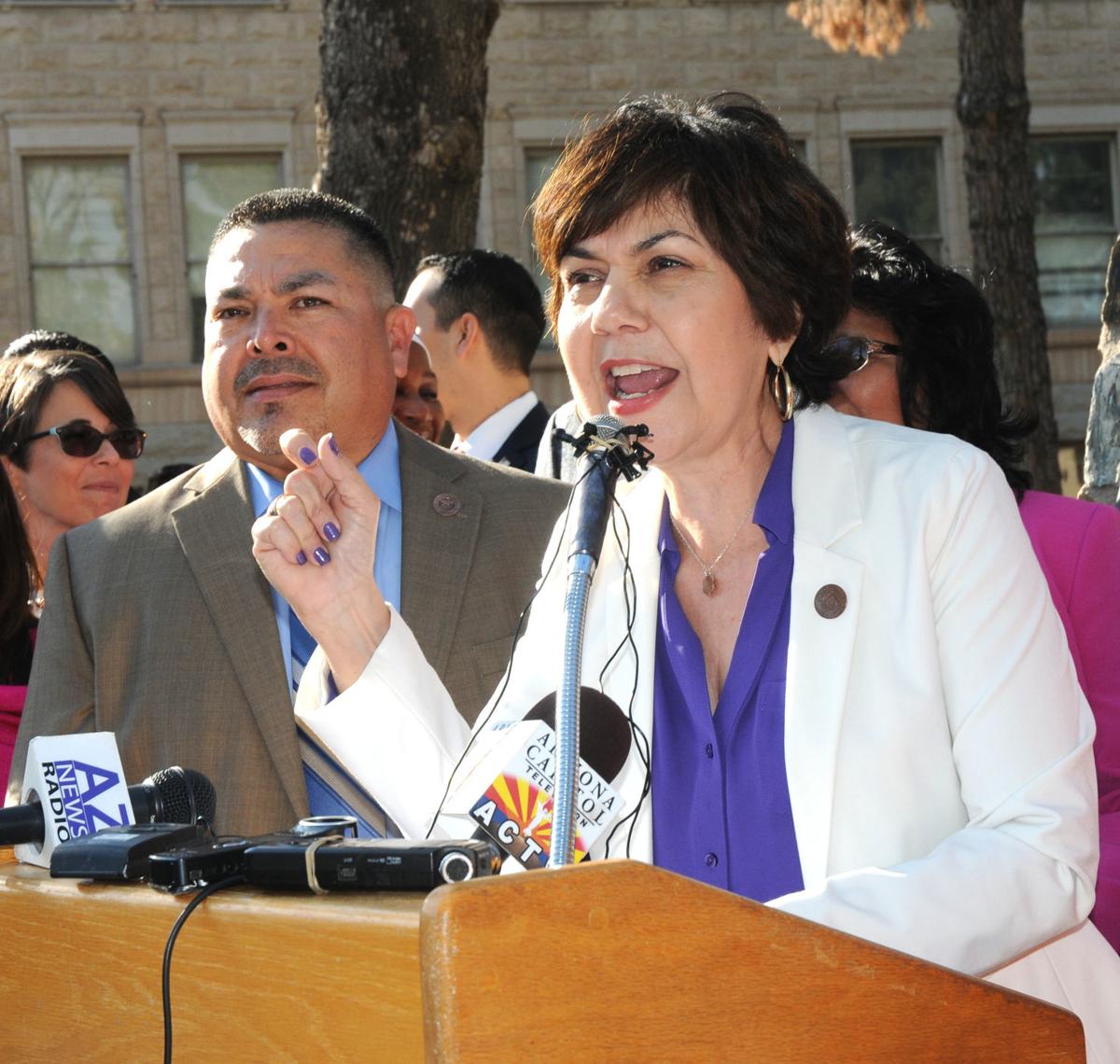PHOENIX — As legislative Democrats trotted out their usual priorities Monday, House Minority Leader Charlene Fernandez said what’s going to be different this session comes down to numbers and the chance to get Republican support on some issues important to her members.
Fernandez, who represents Yuma, pointed out that Democrats picked up four House seats in the last election, which brings them to 29 in the 60-member chamber. She acknowledged that’s still not enough to get a bill through the House. And the Senate remains 17-13 Republican, with a Republican governor.
But she argued there will be sufficient members of the majority party who will side with at least some items on the Democrat agenda, ranging from health-care funding to school issues like increasing state aid to better oversight of for-profit charter schools. And some issues, Fernandez said, are bipartisan, including ratifying a “drought-contingency plan” to decide who will and will not get water from Lake Mead, the source of water for Tucson via the Central Arizona Project.
What else Democrats may have going for them is that the state is looking at having $900 million more this coming year after maintaining the current level of expenses. And while Republicans and Gov. Doug Ducey will quash any spending spree, there is pressure to fund certain issues.
That, said Fernandez, includes fully financing public schools. There were deep cuts both to operating funds and school construction during the recession, only some of which have been restored.
There also a call by the minority party to extend the 20 percent pay raises promised last year to teachers to other school personnel who were excluded from the plan pushed through by Ducey.
Democrats will also push a school-safety plan of their own even as Ducey could not get the votes for a less-far-reaching plan through the Republican-controlled Legislature last year.
And there are calls for more traditionally Democratic issues.
Senate Minority Leader David Bradley of Tucson said Arizona has the fourth-highest rate of incarceration of any state, with the costs of running the Department of Corrections now eating up more than $1 billion a year in a $10 billion budget.
“We have led ourselves to believe that incarcerating people is the key element of rehabilitation when in fact we often manage to reinforce the very behaviors we are trying to extinguish,” he said. Bradley said something more is needed than “simply placing people behind bars with no hope and no motivation to change.”
And then there are items that might just be considered a Democrat wish list, unlikely to gain much traction in the current GOP-controlled political environment, like enacting automatic voter registration, restricting the ability to finance campaigns with anonymous donations, curbing state-imposed restrictions on abortion and ratifying the federal Equal Rights Amendment.
“And no Arizonan should be fired or discriminated against because of how they identify or whom they love,” Bradley said.
The claim by Fernandez that 29 out of 60 is enough to influence policy will be tested, and not just because the Senate GOP edge remains unchanged.
The last time Democrats had this many members in the House was more than 50 years ago.





